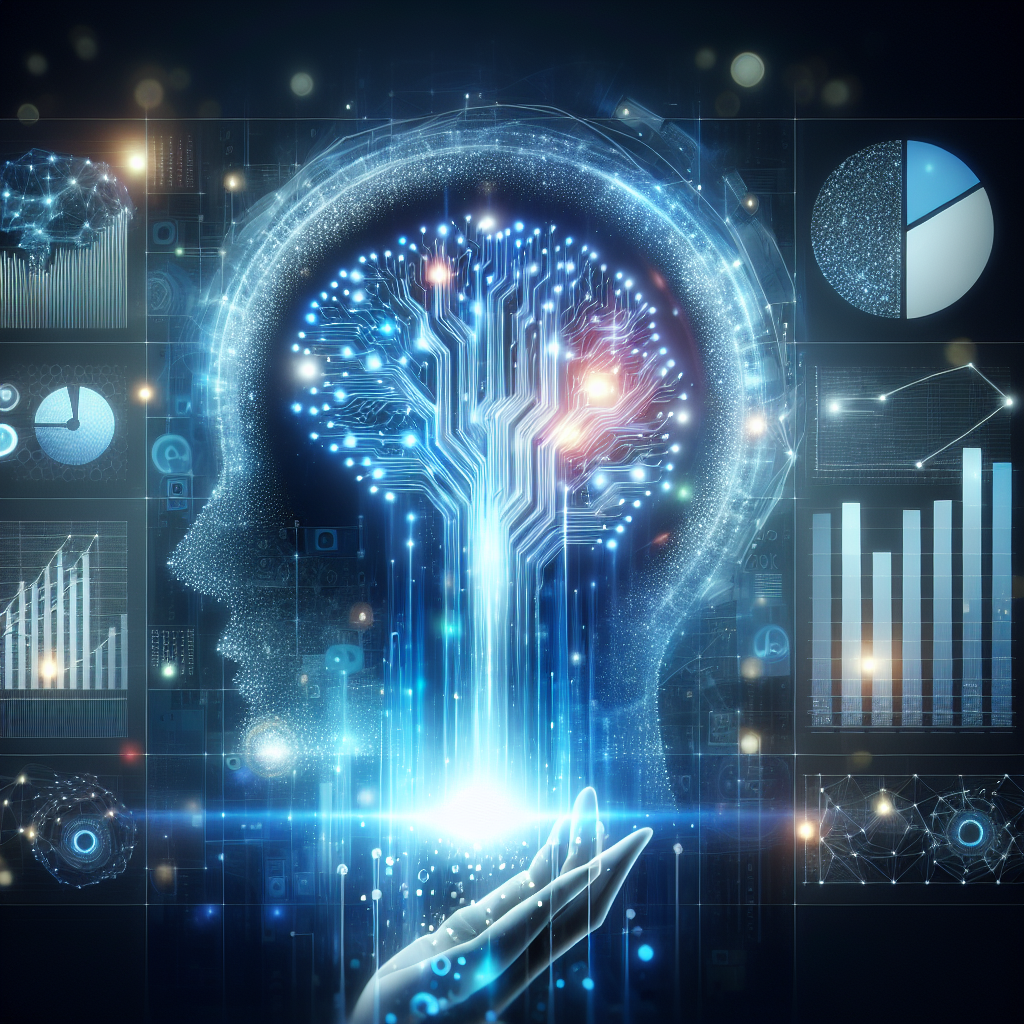Artificial Intelligence (AI) is revolutionizing the way businesses operate and make decisions. With the ability to analyze vast amounts of data in real-time, AI is reshaping the landscape of business intelligence (BI) by providing valuable insights and predictions that enable companies to make more informed decisions. In this article, we will explore the top AI trends that are shaping the future of business intelligence and how they are impacting organizations across various industries.
1. Machine Learning and Predictive Analytics
One of the most significant AI trends in business intelligence is the use of machine learning and predictive analytics. Machine learning algorithms can analyze large datasets to identify patterns and trends that may not be apparent to human analysts. By using these insights, businesses can make more accurate predictions about future outcomes and make informed decisions based on data-driven insights.
Predictive analytics is another important aspect of AI in business intelligence. By using historical data and machine learning algorithms, businesses can forecast future trends and make proactive decisions to stay ahead of the competition. For example, retailers can use predictive analytics to forecast customer demand and optimize their inventory levels accordingly, leading to improved sales and customer satisfaction.
2. Natural Language Processing (NLP) and Conversational AI
Natural language processing (NLP) is a branch of AI that enables machines to understand and interpret human language. NLP is being increasingly used in business intelligence to analyze unstructured data such as customer reviews, social media posts, and emails. By using NLP, businesses can extract valuable insights from text data and make data-driven decisions based on customer feedback and market trends.
Conversational AI is another AI trend that is shaping the future of business intelligence. By using chatbots and virtual assistants, businesses can provide real-time insights to employees and customers, enabling them to make faster and more informed decisions. For example, a sales team can use a chatbot to access real-time sales data and customer information, allowing them to personalize their interactions and close deals more effectively.
3. Augmented Analytics and Automated Insights
Augmented analytics is a new approach to business intelligence that combines AI and machine learning to automate data analysis and provide actionable insights to users. By using augmented analytics tools, businesses can simplify the data analysis process and enable users to make faster decisions based on real-time insights. For example, a marketing team can use augmented analytics to identify customer segments with the highest conversion rates and optimize their marketing campaigns accordingly.
Automated insights is another AI trend that is transforming business intelligence. By using AI algorithms, businesses can automate the process of generating insights from data and deliver actionable recommendations to users. For example, a financial analyst can use automated insights to identify potential risks in a company’s financial statements and take proactive measures to mitigate them.
4. Edge Computing and Real-Time Data Analysis
Edge computing is a technology that enables data processing to be performed closer to the source of data, such as IoT devices and sensors. By using edge computing and AI algorithms, businesses can analyze data in real-time and make faster decisions based on the latest information. For example, a manufacturing plant can use edge computing to analyze sensor data and identify potential equipment failures before they occur, leading to improved operational efficiency and reduced downtime.
Real-time data analysis is another AI trend that is shaping the future of business intelligence. By using AI algorithms and streaming analytics, businesses can analyze data in real-time and make instant decisions based on the latest information. For example, a retail store can use real-time data analysis to monitor customer traffic and adjust their pricing and promotions accordingly, leading to increased sales and customer satisfaction.
5. Ethics and Bias in AI
As AI becomes more integrated into business intelligence, concerns about ethics and bias in AI algorithms are becoming increasingly important. Businesses must ensure that AI algorithms are ethical and unbiased to avoid potential risks and negative consequences. By using ethical AI principles and guidelines, businesses can ensure that AI algorithms are fair, transparent, and accountable.
FAQs:
Q: How can AI improve business intelligence?
A: AI can improve business intelligence by analyzing vast amounts of data in real-time, identifying patterns and trends that may not be apparent to human analysts, and providing valuable insights and predictions to enable companies to make more informed decisions.
Q: What are the key AI trends shaping the future of business intelligence?
A: The key AI trends shaping the future of business intelligence include machine learning and predictive analytics, natural language processing (NLP) and conversational AI, augmented analytics and automated insights, edge computing and real-time data analysis, and ethics and bias in AI.
Q: How can businesses ensure that AI algorithms are ethical and unbiased?
A: Businesses can ensure that AI algorithms are ethical and unbiased by using ethical AI principles and guidelines, conducting regular audits and assessments of AI algorithms, and providing transparency and accountability in the development and deployment of AI systems.
In conclusion, AI is rapidly transforming the field of business intelligence by providing valuable insights and predictions that enable companies to make more informed decisions. By leveraging the latest AI trends in machine learning, NLP, augmented analytics, edge computing, and ethics, businesses can gain a competitive edge and drive innovation in their industries. As AI continues to evolve, it is essential for businesses to stay abreast of the latest trends and technologies to harness the full potential of AI in business intelligence.

